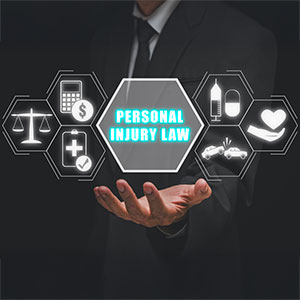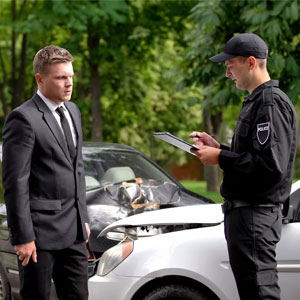Liability For Negligent Car Maintenance
Legal Liability Of Car Owners For Negligently Performed Maintenance In Florida
In Florida, the owner of a car is legally responsible to ensure that proper maintenance has been performed on the car. When a car is involved in an accident and improper maintenance is to blame, then the owner of the car can be held legally responsible in a court of law. A claim for improper maintenance is brought directly against the owner.
Who Can Make A Claim Against A Vehicle Owner For Improper Maintenance?
If you were involved in a car accident in Florida where the cause of the accident was improper maintenance to the vehicle, then you may have a legal claim for negligent maintenance against the owner. The owner of the car may be responsible to passengers in the car (if owner driving), anyone borrowing the owner’s car (including a driver), or anyone in another car that was hit by the improperly maintained vehicle.
Burden Of Proving Negligence
When making a claim for improper maintenance against a vehicle owner in Florida, it is important to remember that you, as the plaintiff in the case, have the burden of proof to show that the owner of the vehicle was in fact negligent. The owner of the car may have a defense if a mechanical failure was not reasonably foreseeable or was the result of a defective product or component.
A generalized example of negligent maintenance would be failing to perform maintenance at regular intervals as specified by the original equipment manufacturers. For instance, if a vehicle owner fails to periodically inflate the tires and there is a tire blowout due to under-inflation (as opposed to a defect), then the vehicle owner may be held legally responsible for injury or damage that results.
Likewise, a vehicle with improperly tightened lug nuts can lose a wheel. I once had a case involving a gentleman who was injured by a tire rolling down the road. The story was something that you would think could only happen in a cartoon, however, it happened in reality.
The vehicle owner in that case had the car serviced at a tire repair shop that failed to properly tighten the lug nuts before allowing the customer to drive off. Thereafter, the owner drove the car approximately 20 miles and, during that time, noticed additional noise coming from the wheel in question.
Ultimately, the insurance company for the owner of the car settled the case with us because the owner should have been suspicious of a wheel problem well before the wheel separated from the vehicle. The vehicle owner could have and should have stopped to use the lug wrench provided by the manufacturer to tighten the lug nuts.
The tire repair shop also paid something to settle the case because their negligence had set this chain of events into motion, however, the vehicle owner had the last clear chance to prevent the incident from happening.
What Should A Vehicle Owner Periodically Check To Avoid Legal Liability?
1. Exterior Lights
The easiest thing an owner can do is to check the vehicle’s lights. Broken headlights, brake lights, or turn signals are frequent negligence related maintenance issues that can be repaired by an owner. Many issues with lights are fixable with a simple trip to the store (although, with modern cars changing a bulb may not be so easy). Regardless of how difficult, delaying a repair may be what results in legal liability for an owner.
2. Brakes
The next thing to regularly pay attention are the vehicle’s brakes. Your vehicle’s brakes will not last as long if you typically drive in heavy or stop and go traffic or you have hard driving habits. Some cars have a dashboard indicator that will tell you that you need to repair your brakes.
In other vehicles, there is a “scraper” on the brake pad that will begin to make noise against the brake rotor when there is approximately 10% of the pad remaining. This should give plenty of time to make a repair, however, delaying until complete failure may result in an accident and legal liability.
3. Tires
A vehicle’s tires age with time regardless of the number of miles on them. I have heard plenty of times that “there is plenty of rubber on those tires” and hence no need to replace. Generally, tires should be replaced at 6 years of age from manufacture (includes time spent on the rack before installed on your car).
The reason for this is because the rubber gets hard and brittle as it ages. Exposure to the sun and outdoor elements only speeds up that process. Hard and brittle tires can crack and separate more easily resulting in a tire blowout. Improper inflation (too low or too high) resulting in tire failure is also a basis for legal liability of the owner.
Worn out tires or tires with a nail hole or puncture wound that cannot be repaired should be replaced sooner rather than later.
4. Inspect After Regular Service And On Regular Occasions
Owning a car is a responsibility. A vehicle owner should be aware of what service has been performed and should examine it (or have a technician show you) after vehicle service has been performed. Additionally, an inspection of a vehicle from time to time should alert the owner to any maintenance that needs to be performed that relates to a safety issue. Any noises that are out of the ordinary can be an indicator of a problem.
The owner should also follow all manufacturer specified maintenance recommendations.
Possibility Of Third Party Claim
As mentioned above with the case of the wheel rolling down the road, a negligent maintenance claim against a vehicle owner may also be the result of negligence at the repair shop. While most reputable car repair shops give a warranty on their repairs, those warranty claims typically do not cover injuries or damages to third parties (they only cover the labor and parts involved in the repair).
For injuries or damages to third parties, the claimant should bring a negligence lawsuit against the car repair shop. The vehicle owner might also defend a lawsuit for negligent maintenance by filing a “third party complaint” against the auto repair shop for negligence or the vehicle owner may simple ask that the jury “apportion” liability to the auto repair shop on the verdict form (this is known as a “Fabre” defendant).
If you have a claim for negligent maintenance, then you should bring your claim early so as to avoid any issues with the statute of limitations.
Talk To A Lakeland Personal Injury Attorney About Your Case
If you have been injured in a car accident because someone was careless in performing automobile maintenance, you should contact a Lakeland personal injury attorney. An appointment with an attorney is free to discuss the facts and merits of your case. All cases are handled on a contingency fee basis which means no fees or costs unless money is recovered for you. We represent clients with car accident cases in Polk County including Lakeland, Winter Haven, Bartow, and Haines City, Florida.


